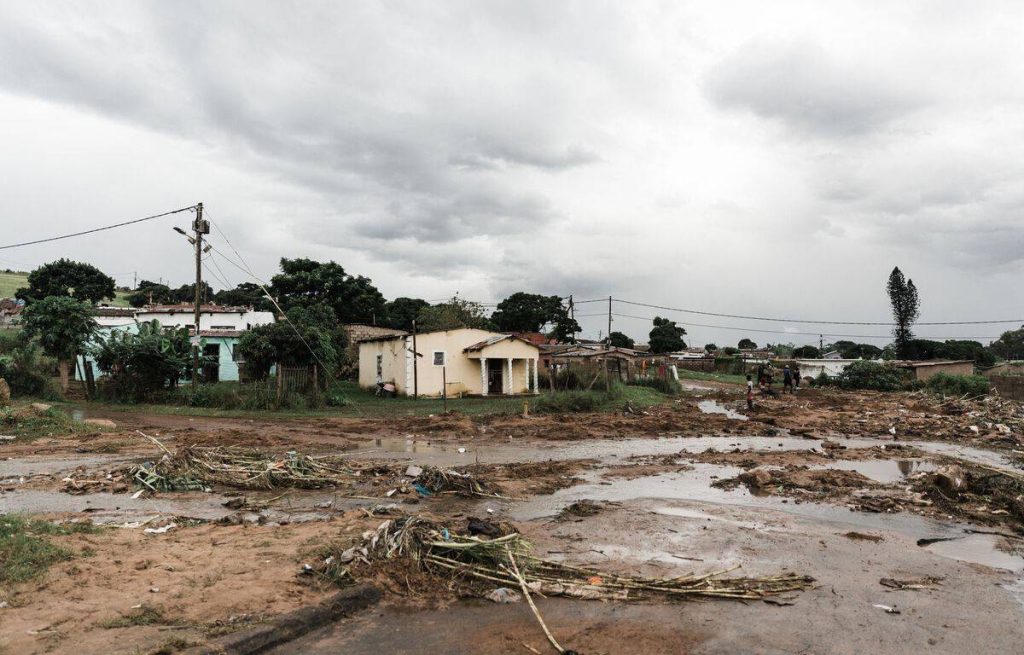
The brutal floods killed nearly 306 people
About ” Disaster In huge proportions, “in the words of the president Cyril Ramaphosa, travels this Wednesday to Durban. at recent days flood devastating in South Africa, the worst in the country’s history, has left 306 dead, according to the latest report from the KwaZulu-Natal Regional Disaster Management Office. Local authorities said they were dealing with an influx of bodies into mortuaries. Record precipitation, which since last weekend has reached a level not recorded in more than sixty years in this open area on the Indian Ocean, has left behind devastated landscapes.
Bridges have collapsed. Roads collapsed. people died. Our people are wounded. “It’s a catastrophe of gigantic proportions,” said the head of state. In places around Durban, landslides have left giant gaping holes in the ground as if slashed by torrential waters. Rescuers described the dozens of people missing as a “nightmare”.
Buried families
During his visit, Ramaphosa visited bereaved families. In Claremont, a poor suburb of Durban, he promised government help to a father who had lost his four children, buried in the collapse of part of their home. Clasping his hands, the man told the head of state about the rising water in the middle of the night, the power outage, and his children sleeping in another room and failing to save them.
According to meteorologists, the rain is expected to decrease slowly in the evening. This area, which experienced massive devastation during an unprecedented wave of rioting and looting in July, was already experiencing a drop in rainfall. In the humid heat, some were wandering around the collapsed buildings. An AFP journalist pointed out the debris-strewn roads, others scattered sand to fill in the gaps.
‘Climate change is getting worse’
Some schools opened, but seats were mostly empty. The army was mobilized to provide air support during the evacuations. Thousands of homes were destroyed, and at least 140 schools were affected, according to local authorities. For several days, major roads were also submerged in brown molasses, with signs and traffic lights floating.
Mountains washed from twigs, bottles and litter on the beaches of Durban, which are usually popular with tourists and families. Port activity has been suspended, containers have been washed. Looting has been reported. Heavy rains also led to power outages and disruption of the water supply. Railroads were suspended and residents urged to avoid travel.
“We know that climate change That’s getting worse, we’ve gone from extreme storms in 2017 to presumably recorded floods in 2019, but it’s clear to overtake them today in 2022, warned Marie Galvin, professor of development studies at the University of Johannesburg. In 2019, floods in the region and the neighboring Eastern Cape province claimed 70 lives and destroyed many coastal villages in mudslides.

“Unapologetic pop culture trailblazer. Freelance troublemaker. Food guru. Alcohol fanatic. Gamer. Explorer. Thinker.”
